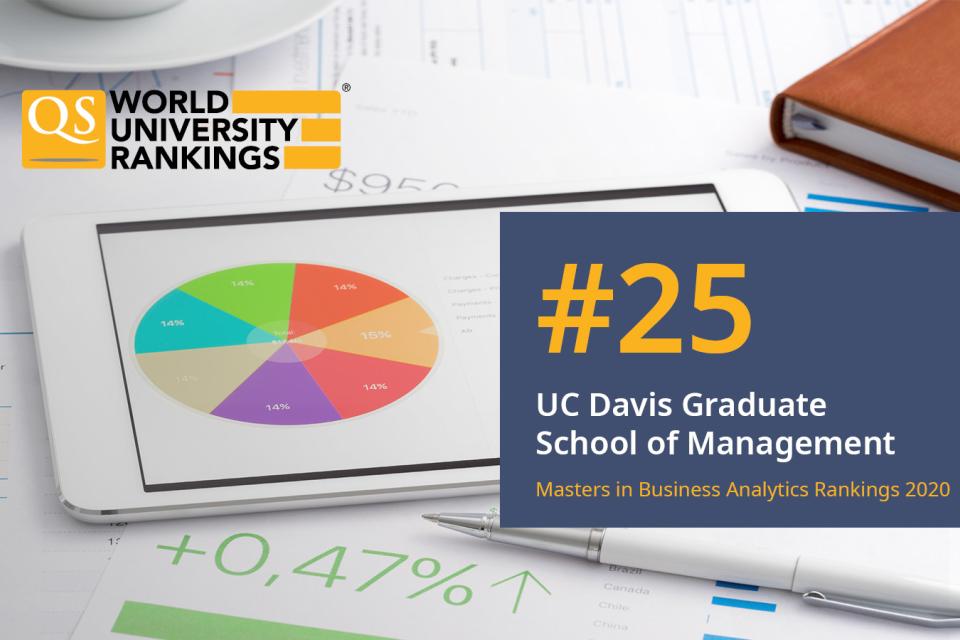QS Ranks MSBA No. 25 Globally, No. 6 for Value for Money
Full-Time MBA ranks among the best in the world

(Davis, Calif.) — The UC Davis Graduate School of Management’s Master of Science of Business Analytics (MSBA) and Full-Time MBA programs continue to rank among the best in the world in QS World University Rankings 2020, released on September 26, 2019.
In the QS Global MSBA Rankings 2020, the UC Davis M.S. in Business Analytics places:
- No. 6 worldwide for value for money
- No. 10 program in the U.S.
- No. 25 program globally
QS ranked the 86 best M.S. in Business Analytics programs in 18 countries, including 44 programs in the U.S.
MSBA Return on Investment
QS estimates that the UC Davis MSBA program has a 10-year average return on value of $919,837, which is nearly double the global mean of $575,108.
Based on factors included tuition, pre- and post-program salary estimates, and length of program, QS estimates that it takes only 18 months or 1.5 years to fully payback the cost of the UC Davis MSBA program.
UC Davis MSBA Doubles in Size, Proven Placement Success
The UC Davis MSBA program has doubled the number of students this year based on corporate demand and job placement success.
Recent alumni are now working at leading companies such as Amazon, Facebook, Google, Tesla, Charles Schwab, Task Rabbit, eHealth and Walmart.
Full-Time MBA Rankings
QS continued to rank the UC Davis Full-Time MBA program among the best in the world and in the U.S.:
- No. 48 in the U.S.
- No. 36 in the U.S. for employability of graduates
- No. 46 in the U.S. for return on investment
- Top 100 MBA program worldwide
The 2020 QS Global MBA Rankings included 240 programs in 38 countries with 105 in the U.S.
QS estimates a 10-year average return on investment of $537,599 for UC Davis MBA graduates, which is greater than the global average.
Methodology
This year’s QS rankings for MBA and Masters programs reflect the basis of five key indicators:
- Employability of Graduates (40%)
- Return on Investment (20%)
- Entrepreneurship and Alumni Outcomes (15%)
- Thought Leadership (15%)
- Class and Faculty Diversity (10%)
